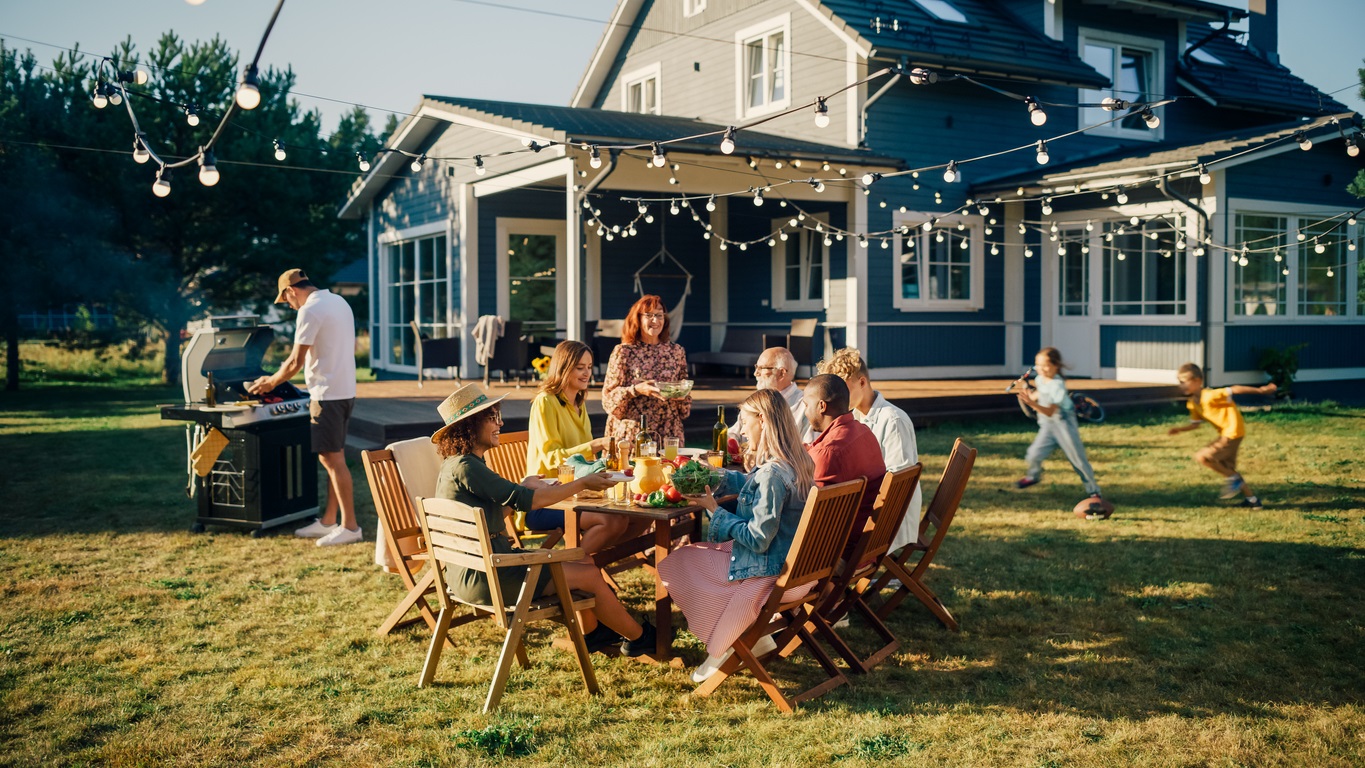For many Canadian families, the cottage isn’t just a property, it’s the definition of summer. It’s where kids learn to swim, cousins become friends, and traditions are passed down. The cottage is where families come together in a way that’s hard to replicate anywhere else.
It’s also where values are passed down, often without a word being said. You learn to contribute – whether it is chopping wood for firewood, sweeping the dock, or taking turns cooking. The family cottage is where you learn to share space, and to pitch in, not because you’re told to, but because that’s just what’s done. These rituals, small and large, are part of what makes the cottage feel like a shared legacy.
And because of this, it’s also why cottages are deeply emotional assets, and at times, often challenging assets to pass along to the next generation. That’s why every family cottage needs a succession plan.
When Cottage Legacy Meets the Logistics of Succession
In estate and family governance conversations, the cottage often comes up as the asset “nobody wants to sell, but then again nobody can agree on how to share.” Unlike an investment portfolio or a business that can be transitioned to the next generation or liquidated and shared, a cottage is, by its nature, indivisible. Passing down the family cottage means balancing emotional connection with legal, financial, and governance realities, hence the need for a family cottage succession plan.
This becomes more evident as you move beyond the first generation. What began as a cherished second home for one family now must serve three or four branches, sometimes living in different cities or provinces, with varying degrees of usage, financial capacity, and emotional attachment.
Four Real-Life Challenges When Passing Along the Cottage to the Next Generation
-
Geography and Lifestyle
The next generation may have moved across the country. Families are busier, and their own children could have sports tournaments, summer jobs, or other travel plans. The cottage may not fit into their lives the way it did for the previous generation.
-
Affordability
Cottages come with rising costs. Increasing property values means higher taxes, insurance, and maintenance costs. While one sibling may be able to cover the cost of a new roof or a septic replacement without blinking an eye, another may be stretched thin. Shared ownership doesn’t always mean shared financial ability, and this can lead to stress and conflict.
-
Time and Usage
How do you decide on which family gets the cottage for the prime weeks in the summer? What happens when some families use the cottage regularly while others don’t but still want a say in how it’s used and maintained? These tensions can build quietly over time, surfacing in passive-aggressive comments or last-minute “booking battles.”
-
Capacity
With more children, and now grandchildren, the once-cozy cottage becomes cramped. Not everyone can be there at once, and suddenly what was once “everyone’s place” starts to feel like “no one’s place.”
If You Want to Keep the Family Cottage, You Need a Succession Plan
For families serious about keeping the family cottage in the family, it takes more than good intentions, it takes governance.
Think of it like a family business: if you want it to thrive across generations, it needs rules, roles, and realistic expectations. In other words, a family cottage succession plan.
At Kerr, when we work with clients, we help them explore the following:
-
Shared Cottage Use Agreements
Even if the cottage remains in a parent’s name today, it’s not too early to start documenting expectations. Well-drafted shared cottage agreements set expectations early and reduce the chances of miscommunication or resentment.
Scheduling: How will weeks be allocated? Will there be a lottery, a rotation, or a booking calendar?
Expenses: How will costs be shared? Is there a common fund or will those using the cottage pay for its maintenance?
Repairs: Who decides when repairs are needed? What is a major expense that may require consensus to agree on what approach to take?
Creating a family cottage constitution can help reduce friction. It doesn’t have to be a multi-page legal document. Instead, it can start as a one-pager that gets updated annually, that is then agreed upon by the next generation.
-
Cottage Ownership Structures: Personal, Trust, or Corporate
Choosing the right cottage ownership structure is one of the most important estate decisions a family can make. There’s no one-size-fits-all structure, but here’s a brief overview of the common options that we see in our practice:
Direct Co-Ownership: Simple, but it can be risky. All parties are personally liable, and disputes could get messy. For example, if one person can’t or won’t pay their share of expenses, the others may have to cover the shortfall, and decisions like selling or renovating the cottage usually require unanimous agreement.
Holding Company: This approach can centralize ownership and limit liability, but it adds complexity. It may also trigger shareholder benefit rules under Canadian tax law, resulting in taxable benefits if the cottage is not used in a commercial context, soa it’s generally not recommended for personal-use properties today.
Trust Ownership: Allows for centralized control and longer-term planning. But, when it comes to trusts and cottages, you need to consider the 21-year deemed disposition rules under Canadian tax law—which can create a significant tax bill unless planned for.
Choosing the right structure depends on your family dynamics, financial objectives, and how much complexity you’re willing to manage.
-
Capital Gains Tax on Cottages: What You Need to Know
Don’t overlook the capital gains tax on your cottage—especially if it has appreciated significantly over the years.
Capital Gains: If the cottage isn’t designated as your principal residence, a capital gain will be realized upon death or sale, and the tax bill can be substantial.
Gifting vs. Bequeathing: Transferring the cottage during your lifetime may help with a family cottage succession plan, but it could trigger immediate capital gains tax.`
Trust Structures: The 21-year deemed disposition rule requires thoughtful planning, including possible freeze transactions or staggered ownership strategies.
-
Plan for Family Cottage Disputes Before They Happen
What happens if someone wants out?
- Can a sibling or cousin sell their share?
- Does the family get a right of first refusal?
- Is there a buyout formula?
Many family cottage disputes could be avoided with a written agreement and a proactive exit plan.
-
Sometimes Letting Go is the Right Move
Not every cottage is meant to stay in the family, and that’s ok. The emotional burden, logistical complexity, or cost may become too much. In that case, consider:
- Renting a cottage together annually instead of owning one.
- Using sales proceeds to fund shared travel or other family experiences.
- Creating a cottage memory book with recipes, photos, and stories to preserve its spirit, even after the property is sold.
Preserve Your Cottage’s Legacy, Don’t Leave It to Chance
The best time to plan is while everyone is still getting along. If you haven’t done so already, make this the summer you talk about ownership, usage, and succession.
Families often spend more time planning the cottage menu than they do planning for the future of the cottage itself. But if you want it to remain part of your legacy, the plan is essential.
Whether your cottage is a simple cabin or lakeside estate, what matters most is how it brings your family together. A thoughtful flexible plan can help make sure it stays that way.
What You Can Do This Summer to Make a Family Cottage Succession Plan
If your cottage is an important part of your family’s story, consider making this the summer you talk about its future. Whether it’s drafting a usage agreement, exploring ownership options, or understanding the tax implications, the key is to start early, before decisions become emotional. Succession planning for Canadian families isn’t just about money—it’s about keeping the peace and the legacy.
We’re here to help.
If keeping the family cottage in the family is the goal, proactive planning is the path. We’d be happy to help.
Related Articles
Blog, Investment Management, Kerr Family Office





